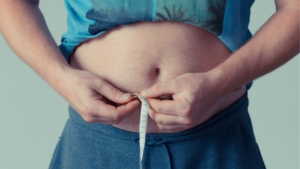
Men everywhere are suffering with plummeting testosterone levels. A recent study showed that testosterone levels have declined over 30% in the last 30 years.[1] It has become such a problem that research now indicates that 1 in 4 men over the age of 30 has low levels of testosterone.[2]
And declining testosterone levels are associated with significant health issues. Here are just a few symptoms men experience with low testosterone:
- Low sex drive
- Erectile dysfunction
- Weight gain, especially around the midsection
- Loss of muscle mass
- Fatigue and irritability
- Loss of mental focus
- Hair loss
- Loss of bone density
- Anxiety and depression
Does any of this sound familiar?
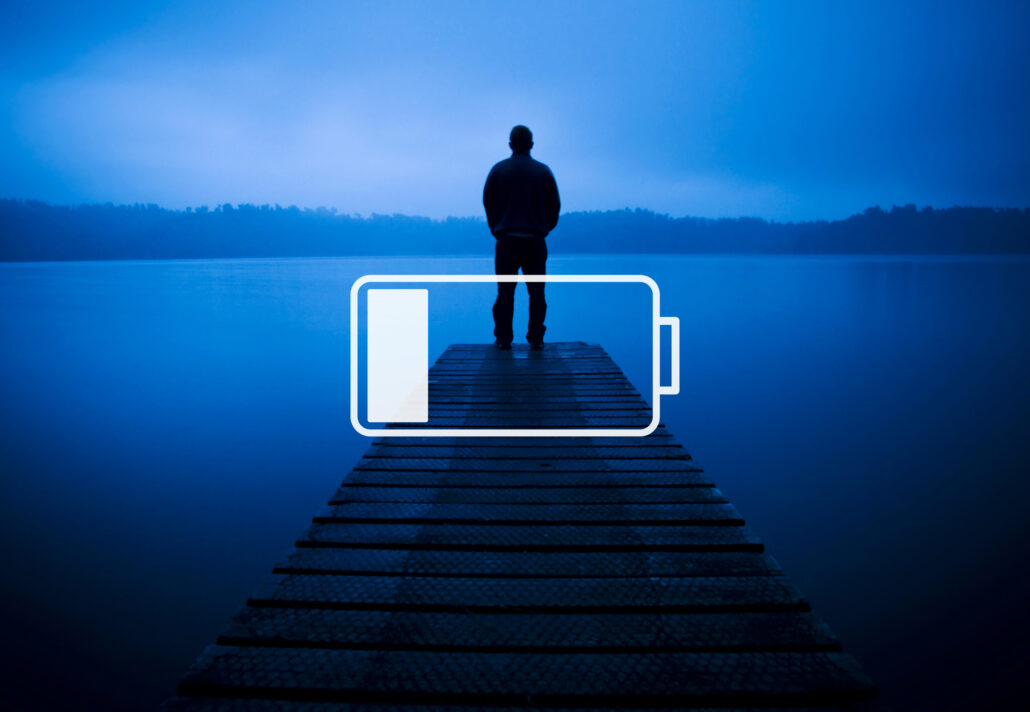 https://drtracygapin.com/blueprint
https://drtracygapin.com/blueprint
When my patients complain that they don’t quite feel like themselves, I find they often have low testosterone. One reason men fail to recognize the issue is because the symptoms of low testosterone will often develop slowly over time.
Men will often come to see their doctor when they struggle with erectile dysfunction, but low testosterone goes far beyond the bedroom. Having a good level of testosterone is vital for all aspects of a man’s health and well-being.
If you suffer from any of the aforementioned symptoms, it’s time to get your testosterone levels checked by a doctor. In preparation for this visit, here are some key questions you should consider.
How Do I Know if I’m Low in Testosterone?
Testosterone is a hormone produced primarily in the testes for men (and at lower levels, in the ovaries for women), but small amounts are also produced by the adrenal glands. Testosterone is part of the endocrine system and its release and regulation is controlled by the brain’s pituitary gland and hypothalamus.
To test your testosterone levels, your doctor will run some blood work, usually in the morning since that is when your hormone levels are at their highest. “Low testosterone”, or hypogonadism, occurs when a man’s level falls below optimal levels.
This brings up a critical question: “What is optimal?!”
Most labs define the lower limit of “normal” testosterone levels to be anywhere from 250 to 350 ng/dL, depending on the lab. The problem with this is there is a massive difference between what is considered clinically “normal” and what is optimal – i.e. what men need to actually experience the benefits of healthy testosterone levels. We’ll cover this huge topic in another blog post, but suffice it to say that men typically need much higher serum testosterone levels than what the clinically “normal” range suggests.
What Causes Low Testosterone?
A man’s testosterone peaks in early adulthood and naturally reduces as he ages. Once he enters his 30s, his levels begin to decline about 1 to 2 percent each year. Some men don’t start noticing the effects of this decrease until they hit the age of 50, but there are others who start to show symptoms even a decade or two earlier.
In addition to age, there are a number of potential causes for low testosterone. Injury or infection to the testes and malfunction of the pituitary gland can cause low testosterone, and diseases like obesity, diabetes and cardiovascular disease are all strongly linked to testosterone deficiency. Endocrine disruptors – chemicals and toxicants in our environment – are clearly a major culprit as well.
Low levels of vital nutrients like zinc or Vitamin D have also been found to correlate with low testosterone. Certain medications can lower testosterone, including asthma inhalers, antidepressants, and antihistamines, as well as chemotherapy.[3] And a number of lifestyle factors, such as smoking, drug abuse, poor sleep, poor diet, and obesity, can lead to low hormone levels.
How is Low Testosterone Treated?
There are a few important concepts to understand before diving into treatment options for men with testosterone deficiency. First it’s key to recognize that treatment requires a comprehensive approach. It’s never as simple as just getting testosterone therapy. It’s critical to be aware that there’s no magical one-size-fits-all solution that works for every man. Treatment varies depending on each man’s underlying health issues, genetics, symptoms, and goals.
A key aspect of addressing low testosterone is to address underlying health issues and develop healthy lifestyle habits. Losing weight has been shown to directly improve testosterone levels. Research shows that exercise, especially weight training or high-interval training, naturally boosts testosterone.[4] Proper nutrition and sleep are critical aspects of a comprehensive approach to overcoming low testosterone and its associated symptoms. Check out the MALE 2.0 Blueprint to learn how to start incorporating healthy habits into your daily life.
Another common approach is hormone replacement therapy (HRT). Hormone replacement therapy involves artificially raising your testosterone levels via a gel, skin patch, injection or hormone pellet implants.
What Are the Benefits of Hormone Replacement Therapy?
A number of studies back up the claim that testosterone replacement therapy can provide men with real benefits. Here are just a few examples, according to a recent academic review:[5]
- Muscle gain and improved strength: Several studies found testosterone replacement therapy improves men’s body composition, decreases fat, and increases lean body mass and muscle strength.
- Increased bone density: Testosterone therapy has been shown to increase bone density, especially among elderly men, which puts them at a reduced risk of injury.
- Improved sex drive: Testosterone replacement therapy increases men’s self-reported libido, as well as the frequency of sexual acts.
- Improved cognitive functioning: One study found older men’s risk for Alzheimer’s disease decreased by 26% for each 10-unit increase in free testosterone. Additional studies found testosterone improves men’s spatial, mathematical, and verbal reasoning, as well as their memory.
- Improved mood and quality of life: Men who receive testosterone therapy report an increase in mood and well-being and a decrease in fatigue and irritability.
What Are the Risks of Hormone Replacement Therapy?
Clearly testosterone replacement therapy has its benefits, but it is important to realize it is not a panacea. Such therapy is considered most beneficial when used short-term to help your body get back on track or to treat an underlying issue like hypogonadism. But know that like all treatments, this hormone therapy comes with a number of risks and side effects that must be considered.
Some side effects may include:
- Acne and oily skin
- Breast enlargement or tenderness (rare if treated properly)
- Shrinkage of the testicles
- Hair loss (rare)
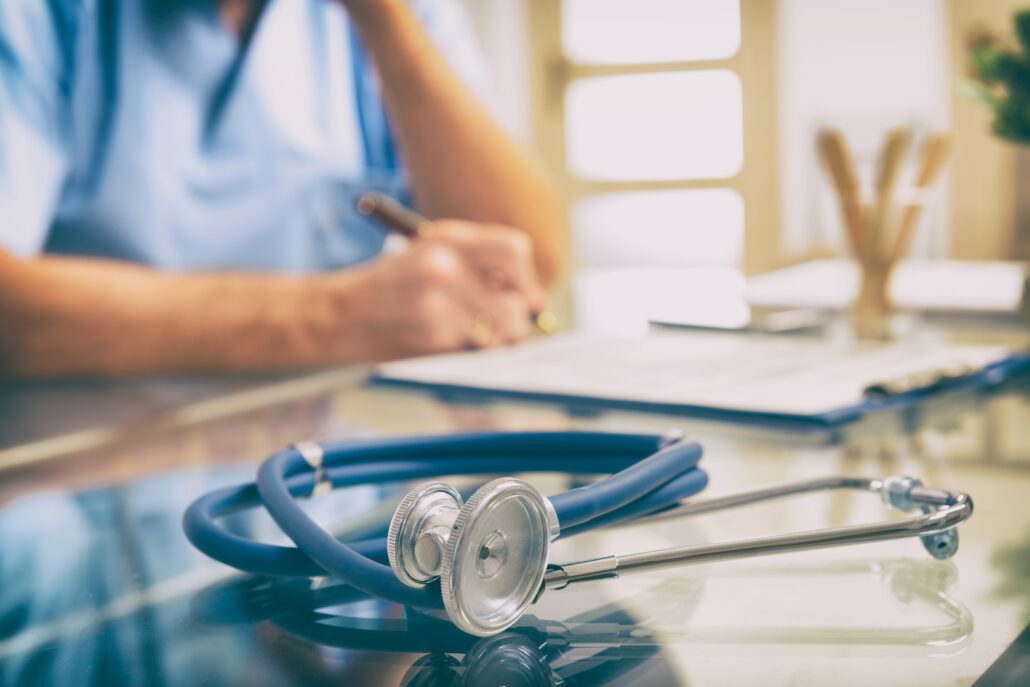
Additional Questions To Ask Your Doctor Before Starting HRT
So you’ve decided to proceed with testosterone therapy. First, be aware that you should never attempt testosterone therapy alone – it should always be done under a doctor’s supervision. But before you start, here are some key questions you should ask your doctor before embarking on a testosterone treatment plan:
- What Are Your Doctor’s Qualifications?
- What expertise and experience does the doctor have in treating men’s health issues generally, and testosterone replacement therapy more specifically?
- How long have they been practicing this approach?
- Given that the science of HRT (hormone replacement therapy) is consistently evolving, how does the doctor stay up-to-date on the topic?
- Do they attend conferences, read scientific journal articles, take training courses?
- Am I a Good Candidate for HRT?
- What evidence is there that I need testosterone replacement therapy?
- If there is evidence, what potential causes does your doctor suspect?
- Do I have certain medical conditions (like sleep apnea or an enlarged prostate) that make me a bad candidate for HRT?
- Can I Boost My Testosterone Naturally?
- Are there things in my medical history or lifestyle that could be changed to improve my testosterone naturally?
- Are there certain foods the doctor recommends to boost testosterone?
- Are there certain supplements the doctor recommends?
- How does sleep quality affect testosterone?
- How does alcohol affect testosterone?
- What changes in my exercise routine can I make to boost my testosterone?
- What Type of Treatment Does the Doctor Prefer?
- What type of HRT does the doctor prefer (e.g., gel, injection, implant) and why?
- How will the doctor determine which hormone dose is right for me?
- How do they track results?
- What is the Expected Cost of HRT?
- Does insurance typically cover the cost of the treatment?
- What will my out of pocket expenses be?
- How long will treatment take?
- What Side Effects Are Expected?
- Will there be pain or inflammation at the injection or implant site?
- What adverse reactions should I look out for?
- What Improvements Can I Expect to See?
- What symptoms should I expect to see improvements on after starting treatment?
- How long will it take before I see results?
- How often will I follow up with my doctor?
- Will the doctor monitor my progress through routine blood tests or other means?
CONCLUSION
If you’re struggling with weight gain, low energy, fatigue, diminished sex-drive, or performance issues in the bedroom, know that it doesn’t have to be that way. You can overcome these issues and become unstoppable TODAY!
It’s time to get empowered to take control of your health. Unlock the code to peak performance with the Male Method™ to regain your energy, focus and confidence to feel like a man again.
We take a whole-body, epigenetic approach to health, focusing on all inputs and how they affect the human system. With the Male 2.0 Method, we utilize science-based precision medicine, personalizing your health based on your unique genetic blueprint. No more guessing!
We utilize cutting-edge age management protocols to reverse the aging process and expand longevity. And we track and leverage your biometric data using state-of-the-art wearable technology to truly optimize your health.
Ready to take the next steps?
Download the Blueprint
Schedule a Call
**************************
**************************
 In Male 2.0™, Dr. Tracy Gapin has turned everything we once thought we knew about men’s health and performance upside down. The old model of how to be “a man” is broken. A man who works himself to death. Unfortunately, a man who tries to NOT get sick but isn’t really healthy either. And a man who takes a pill for every ill but is never really cured. That was Male 1.0. Now, imagine being THE MAN ─ owning your performance in the bedroom, the weight room, and the boardroom. Living a fully optimized life. Becoming limitless. This is Male 2.0!
In Male 2.0™, Dr. Tracy Gapin has turned everything we once thought we knew about men’s health and performance upside down. The old model of how to be “a man” is broken. A man who works himself to death. Unfortunately, a man who tries to NOT get sick but isn’t really healthy either. And a man who takes a pill for every ill but is never really cured. That was Male 1.0. Now, imagine being THE MAN ─ owning your performance in the bedroom, the weight room, and the boardroom. Living a fully optimized life. Becoming limitless. This is Male 2.0!
Tracy Gapin, MD, FACS is a board-certified Urologist, world renowned Men’s Health & Performance Expert, Author, and Professional Speaker. Using state-of-the-art biometric monitoring, nutrition and lifestyle intervention, Dr. Gapin coaches Fortune 500 executives and evolutionary leaders of business, sports medicine, and high performance. He specializes in cutting-edge precision medicine with an emphasis on epigenetics, providing men with a personalized path to optimizing health & performance. www.GapinInstitute.com
Want more tips to optimize your health? Listen to the latest podcasts. Click HERE

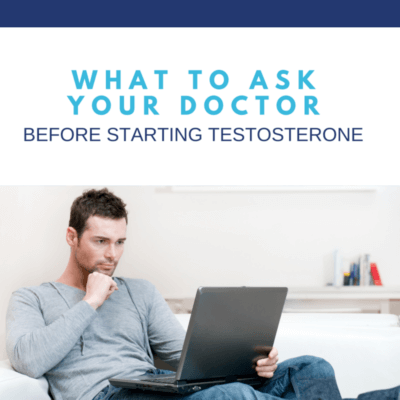
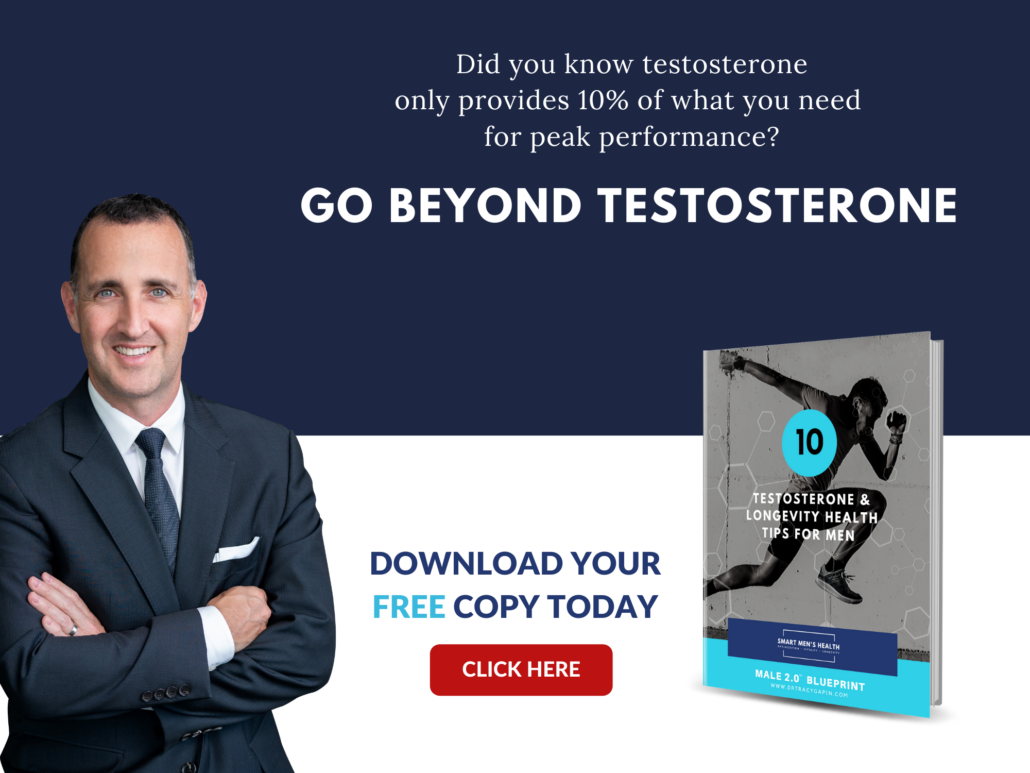

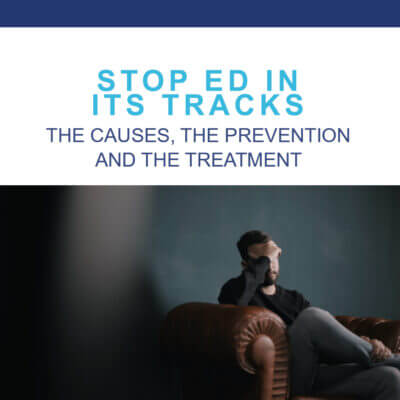





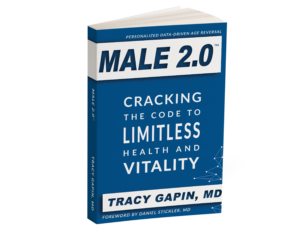 In
In 
